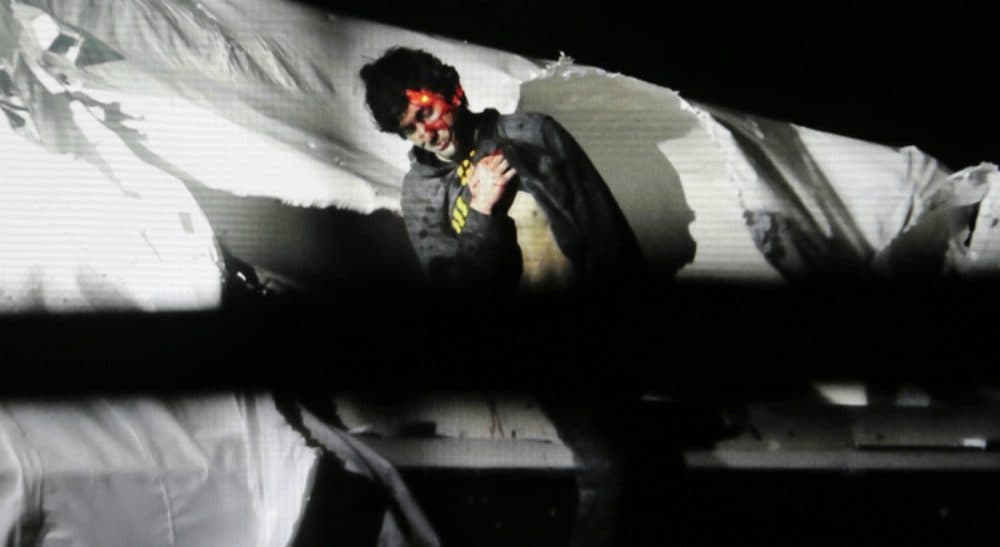Advertisement
Revisiting A Complicated — And Controversial — Emotional Response

Last year, I wrote a piece for Cognoscenti just after Marathon bombing suspect Dzhokhar Tsarnaev was captured. In it, I confessed to feeling a moment of maternal worry for the bleeding, frightened 19-year-old during the siege that led to his capture.
On that first day, my article received dozens of comments from other people — mostly women — confessing similar feelings and expressing gratitude that someone had said what they were thinking. The response was validating.
Just as quickly, however, the tone shifted. What followed were angry, aggressive comments from people who couldn’t understand or tolerate my feelings. The mood shifted more the further we got from the event itself. It was intense.
I suppose I should regret ever writing that piece. But I don’t.
Online, I’m perceived as having felt sorry for a murderer. A Google image search of my name produces pictures of him intermingling with pictures of me. It’s as if I have been digitally condemned to be linked to an accused terrorist.
I suppose I should regret ever writing that piece.
But I don’t.
Because, as so many of those early commenters noted, we could all benefit from embracing some more empathy.
Empathy is defined as the ability to understand and share the feelings of another. It doesn’t mean you are “soft” on anything. Or that you’re a communist or a terrorist. Or that your heart bleeds for nefarious reasons.
Empathy helps us make effective communities. Massachusetts’s own constitution is formed with an eye toward the “common good.” How can we understand and advance shared needs and interests if we aren’t willing to understand people different from, or even abhorrent to us?
Empathy calls us to take a walk in someone else’s shoes before we decide that person’s fate. It calls us to understand each other’s struggles so we can build better solutions. It calls us to treat others, even those we don’t like, with dignity.
Empathy is also hard, messy and scary. Understanding someone else’s feelings and attempting to share them, asks us to open ourselves up to things that make us uncomfortable. Even worse, we worry we are validating actions or choices with which we don’t agree. But validating others as human does not mean we validate what they do.
Public policy without empathy marginalizes vulnerable people and can victimize those who already suffer. Philanthropy without empathy uses money to “fix” others without requiring a sense of shared responsibility. Bureaucracy without empathy can be dehumanizing at its best, and lethal at its worst. The 20th century is riddled with that evidence.
Our society has forgotten what it means to cry with others, to empathize. It’s the globalization of indifference, which has taken away our ability to feel.
Pope Francis
Last year, Pope Francis said, “Our society has forgotten what it means to cry with others, to empathize. It’s the globalization of indifference, which has taken away our ability to feel.” His exhortation doesn’t call on people to agree or to endorse. It does, however, call on us to feel something for each other.
This message is encouraging. It’s also discouraging that it sounds risky and radical. Many early commenters last year expressed genuine fear about friends or colleagues knowing they’d had any empathy for Tsarnaev alongside the empathy we all felt for the victims of the bombing. The people who responded to them validated that fear. The message: empathize with someone threatening and you become a threat.
Our focus should be on the victim’s triumphs as we observe the first anniversary of the bombings. Nevertheless, I'm not sorry I felt that mother's pang. In a world where people will blow us up while we go for a run, we desperately need to hold on to our empathy.
Related: Listen to Tiziana Dearing discuss some of these ideas one year ago:
